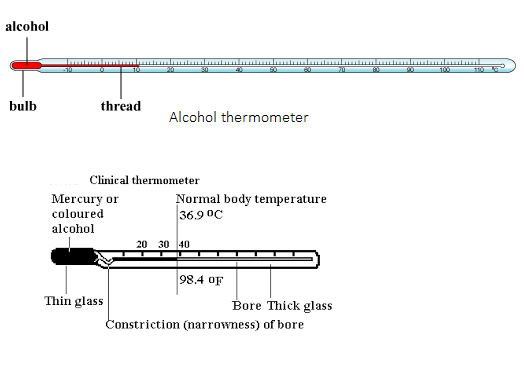What is the temperature range in laboratory thermometer?
1 Answer
Laboratory thermometer has a temperature range from -10 degree C to 110 °C.
It is used to measure the temperatures in school or other laboratories for scientific purpose as they measure temperatures to a range higher than clinical thermometers. One such thermometer is known as the laboratory thermometer with a scale generally ranging from –10°C to 110°C.Clinical thermometers are used to measure the body temperature of humans. Whereas laboratory thermometer is used to measure the temperature of objects. CLINICAL THERMOMETER Use to measure human temperature.
Laboratory thermometers are devices used to measure temperature. ... While a lab thermometer can measure how hot or cold a sample or environment is, the range of measurement can vary widely between models.For example the clinical thermometer will only measure between 80 and 106 degrees because that is the range of body temperatures for humans. A laboratory themometer will cover a much larger range, including boiling point and absolute zero.A laboratory thermometer cannot be used to measure the temperature of a human body because the range of a laboratory thermometer is high generally from –10°C to 110°C, while as normal body temperature in humans is only 37°C.
Laboratory thermometers are devices used to measure temperature. ... A laboratory thermometer can be used for a number of scientific applications and can be found across nearly all laboratories especially in pharmaceutical, environmental, food, and petroleum testing.The more modern thermometer was invented in 1709 by Daniel Fahrenheit. It was an enclosed glass tube that had a numerical scale, called the Fahrenheit scale. The early version of this thermometer contained alcohol and in 1714 Fahrenheit developed a mercury thermometer using the same scale.


